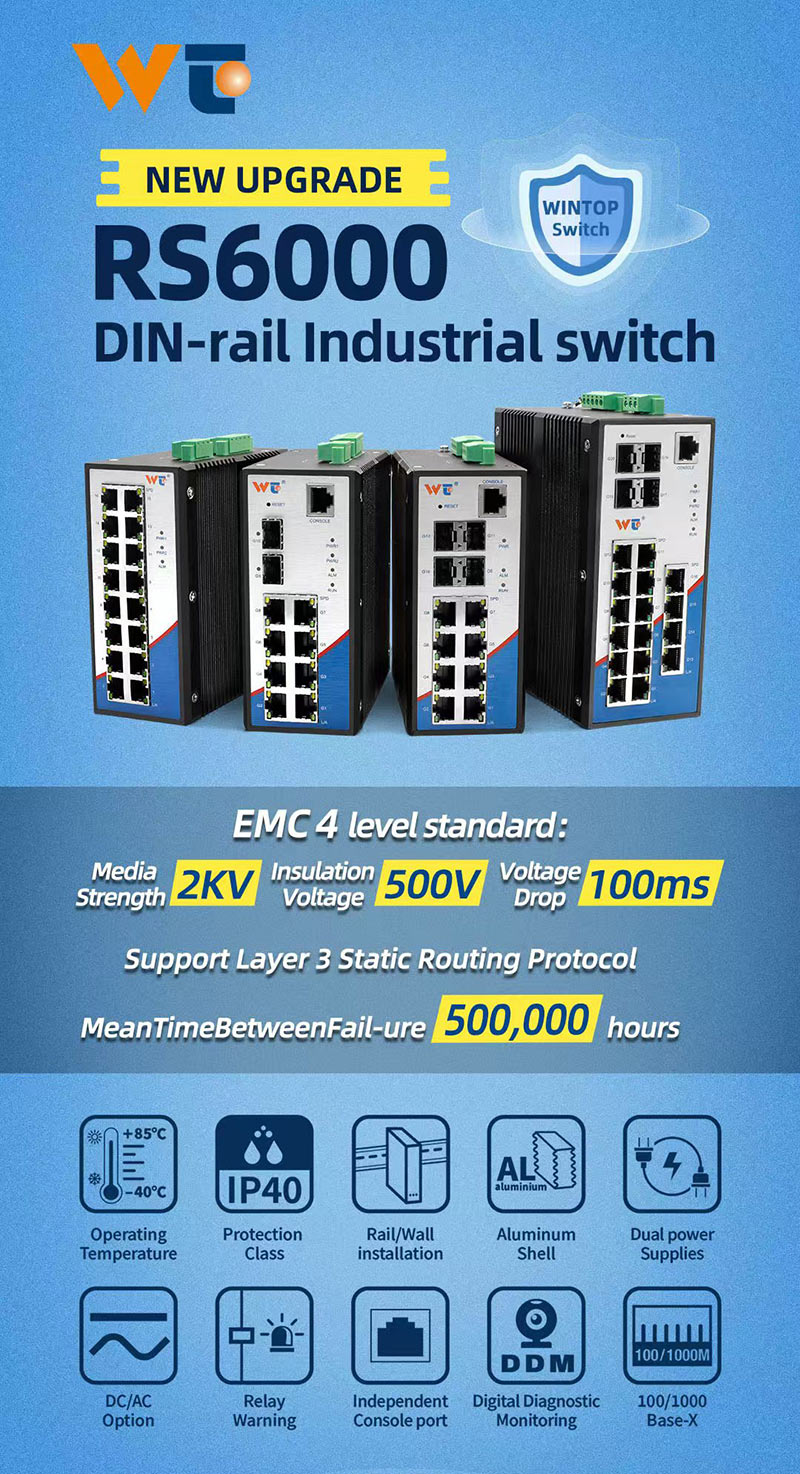The Essential Guide to 8-Port Industrial Switches
As the relentless march of technological advancement continues to ripple through the industrial sector, there emerges a pressing need for robust and reliable networking equipment capable of withstanding the harshest of environments. Enter the 8-port industrial switch: a marvel of modern engineering designed to seamlessly integrate and manage complex industrial networks.
Introduction to Industrial Switches
Industrial switches are pivotal components in modern industrial automation and control systems. They are purpose-built to provide seamless network communication amidst the demanding conditions of industrial environments, including extreme temperatures, humidity, dust, and vibrations. Compared to their commercial counterparts, industrial switches boast enhanced durability, reliability, and a rugged construction that ensures uninterrupted operation.
Defining the 8-Port Industrial Switch
An 8-port industrial switch is a specialized type of Ethernet switch that features eight Ethernet ports, enabling interconnection of multiple devices within an industrial network. These switches facilitate the transmission of data packets swiftly and efficiently, ensuring real-time communication and data exchange. Their application spans a broad array of industries including manufacturing, transportation, energy, and oil and gas, where network reliability is critical.
Key Features
- Rugged Design: One of the most commendable attributes of an 8-port industrial switch is its rugged design. These switches are housed in sturdy enclosures that protect internal components from physical damage, environmental hazards, and electromagnetic interference. The rugged design ensures longevity and reliability in adverse conditions.
- Wide Temperature Range: Industrial environments often deal with extreme temperature variations. 8-port industrial switches are designed to operate efficiently across a wide temperature range, typically from -40°C to 75°C, ensuring consistent performance regardless of the environmental conditions.
- Redundant Power Inputs: To mitigate the risk of power failures, these switches are equipped with redundant power inputs. This redundancy ensures continuous operation by providing an alternative power source in case of the primary source failing.
- Advanced Network Management: Modern 8-port industrial switches come equipped with advanced network management features such as Quality of Service (QoS), VLAN support, and network redundancy protocols like Spanning Tree Protocol (STP) and Rapid Spanning Tree Protocol (RSTP). These features optimize network performance and ensure data integrity.
- Gigabit and Fast Ethernet Options: Depending on the application, users can choose between 8-port industrial switches that support either Gigabit Ethernet for high-speed data transfer or Fast Ethernet for standard data transfer rates.
Application Scenarios
Automation and Control Systems
In manufacturing plants, 8-port industrial switches are integral to the automation and control systems that oversee production lines. These switches connect PLCs (Programmable Logic Controllers), HMIs (Human-Machine Interfaces), and other critical components, ensuring the timely exchange of data necessary for synchronized operations.
Transportation Networks
Railways, highways, and urban transit systems leverage these switches to build robust communication networks that support real-time monitoring and control. For instance, an 8-port industrial switch can connect various surveillance cameras, traffic signal controllers, and data collection terminals, ensuring coherent operation across the network.
Energy Sector
The energy sector, including power plants and renewable energy installations, relies on these switches to maintain efficient communication between different subsystems. Whether it's monitoring power generation, controlling distribution networks, or ensuring data integrity in power plants, an 8-port industrial switch is indispensable.
Oil and Gas Industry
In the oil and gas industry, where reliability is paramount, an 8-port industrial switch plays a crucial role in ensuring seamless communication between drilling rigs, monitoring equipment, and control centers. Their resilience to harsh environmental conditions makes them a preferred choice for such demanding applications.
Conclusion
As industries increasingly transition towards more advanced and interconnected systems, the demand for reliable networking solutions becomes ever more critical. The 8-port industrial switch stands out as a fundamental component in this landscape, offering unparalleled durability, advanced features, and robustness required to thrive in challenging industrial environments. By investing in high-quality 8-port industrial switches, enterprises can ensure the reliability and efficiency of their industrial networks, paving the way for more innovative and resilient operations.
In conclusion, the 8-port industrial switch is not just a piece of hardware; it is the backbone that supports the intricate web of industrial communication, ensuring that every cog in the machine operates in perfect harmony.
